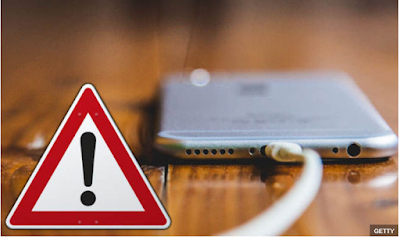In this blog,you see the best myths and the reality behind them.
So keep reading
1. Charge your battery overnight will damage your phone
Smartphones are called "Smart" for a reason. In fact, the present devices are so smart that know when to quit charging – and will stop naturally when they arrive at that point.
So, while it's true that a few years ago overcharging your phone may have damaged the battery, today – so long as you use an official charger – your phone won't get damaged regardless of whether you charge it all night long.
It's worth remembering that all smart phone batteries are in a state of constant decay – so none will last until the end of time. However, charging your phone for the time being won't increase damage to your battery.
2. Automatic brightness setting saves power
Off the bat, this one makes sense. At the point when your screen is less illuminated, your gadget will save power. The automatic brilliance setting allows your phone to bring down illumination to match environmental conditions. Therefore, automatic brightness saves power.
That may be a neat syllogism. But it's not right. There are at least two reasons for this.
Firstly, it's not always true that automatic brightness will bring down illumination. You may spend a lot of time in a well-lit environment, which will increase brightness and reduce battery.
Second, even in a dark environment, the amount of power your light sensor utilizes (in addition to the handling power expected to analyze that data) will regularly be more than the force saved via auto-diminishing.
Why Iphones Are So Expensive ?
3.Close background apps will save power
This one also seems to make a lot of sense.If your phone is running several apps in the background, then your gadget will utilize all the more processing power and so consume more battery, correct?
Well, not really. In fact, both Apple and Android have openly announced that end background apps will do nothing to save your battery.
This is because Android and iOS are both equipped with algorithms that automatically close apps when they should be, refresh or open apps when required and place limits on apps that are utilizing a lot of processing power.
This process is called multi-tasking. For phone manufacturers, it's king of a big deal – and an area they put a great deal of energy into improving. At the point when you continually open and close apps, you interfere with it, and that ultimately utilizes more power.
4.More Megapixels more better image
What's a megapixel? It's one million pixels. As such, a camera with a resolution of 12 megapixels can capture an image made up of 12 million pixels.
Many individuals – including smartphone manufacturers – talk of megapixels as being the primary indicator of how great a camera is. Notwithstanding, these days, pixel quality is far important.
In other words, a 12-megapixel camera with top notch pixels will take preferable photographs over a 15-megapixel camera with low-quality pixels. What's more, the most excellent pixels are quite large, which means less can be crammed into a single image.
So, next time you're phone shopping, recall, more megapixels doesn't necessarily mean better photographs.
So,if you download a 2MB image uses a 4G connection, it may take less time that a 3G one – yet it will even now utilize exactly 2MB of data. The same thing will be true when 5G is turned out. To put it plainly, the main thing that is distinctive between the generations of versatile innovation is the affect on the speed of your connection.
What Is Meaning Of Blogging ??..Explained
6. Smartphone emit Harmful Radiation
Since the time smatphones were first brought to market, people have stressed that the radiation they emit is harmful – causing cancer and other nasty diseases. In any case, a little understanding goes far. In this case, what we have to understand is what cell phones emit.
The answer is electromagnetic waves: the same stuff that makes your radio work. Electromagnetic radiation of the recurrence that smartphones emit is totally safe. For sure, in excess of 25,000 articles have been written on the impact of electromagnetic radiation on humans – which is more research than we've done the vast majority of the chemicals in our food.
7. Don't use your phone while it's charging
You may think that its hard to put your phone down. It is, after all, critical to your social life, your leisure time, possibly your health and even your shopping for food. The fantasy that you shouldn't utilize your smartphone when it's charging, then, is one that many people might want to see refuted.
Thankfully, that's exactly the case. While some electronic devices are unsafe to utilize while charging (which is probably how this legend began in the first place), smartphones are not one of them. Obviously, on the off chance that you utilize your phone while it's charging, it will take longer to reach full battery, But it won't harm either you or your phone.
8. Free Wi-Fi is Safe
For many of us, the idea of free Wi-Fi can be incredibly appealing – especially when we're traveling or outside of our usual system.
In any case, what you may not know is that free Wi-Fi systems are usually open and, therefore, are vulnerable to man-in-the-center attacks. A man-in-the-center attack is the point at which a hacker relays and perhaps alters the communication between two parties who accept they are communicating with each other. Not great.
Because of this, it's a smart thought to avoid open Wi-Fi associations – especially Wi-Fi-hotspots. Hotspots require no authentication to establish a system association, making them ideal for hackers hoping to get unrestricted access to unbound devices utilizing the same system. On the off chance that you should utilize open Wi-Fi, always use a Virtual Private Network (VPN) to add an additional layer of security.













0 comments:
Post a Comment
Comment for More